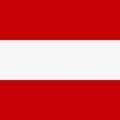10. An der Universität, Teil 4
10. at the university, part 4
10\. All'università, parte 4
10 Na universidade, parte 4
Wie ich schon sagte, interessierte ich mich für Englisch.
|||said|||||
As I said, I was interested in English.
Come ho detto prima, mi interessava l'inglese.
Ich fand private muttersprachliche Englisch-Tutoren.
|found|private|native||tutors
I found private native English tutors.
J'ai trouvé des tuteurs privés de langue maternelle anglaise.
Ho trovato tutor privati di madrelingua inglese.
Es war sehr schwierig sie zu verstehen und nachdem ich viele Stunden mit den Tutoren verbracht hatte, verbesserte sich mein Englisch nur ein bisschen.
||||||||||||||||avait|||||||un peu
It|||||||||||||||spent||improved||||||
It was very difficult to understand and after spending many hours with the tutors, my English only improved a bit.
C'était très difficile de les comprendre et après avoir passé de nombreuses heures avec les tuteurs, mon anglais ne s'est que légèrement amélioré.
È stato molto difficile capirli e dopo aver trascorso molte ore con i tutor, il mio inglese è migliorato solo un po'.
Ich wusste nicht, was ich falsch machte oder wie ich eine Sprachen lernen sollte.
|||||wrongly||||||||
I did not know what I was doing wrong or how I should learn a language.
Je ne savais pas ce que je faisais de mal ou comment apprendre une langue.
Non sapevo cosa stavo sbagliando o come imparare una lingua.
Niemand hatte es mich je gelehrt.
||||jamais|
Nobody||||ever|taught
Nobody had ever taught me.
Personne ne me l'avait jamais appris.
Nessuno me l'ha mai insegnato.
Ninguém nunca me ensinou.
Ich war gewohnt, Grammatik und Vokabeln zu lernen, die mir überhaupt nicht halfen.
||habitué||||||qui|me|||
||used|grammar|||||||||helped
I was used to learning grammar and vocabulary that did not help me at all.
J'avais l'habitude d'apprendre la grammaire et le vocabulaire, ce qui ne m'aidait pas du tout.
Ero abituato a imparare la grammatica e il vocabolario che non mi aiutavano affatto.
Aber ich gab nicht auf und bezahlte die Tutoren weiter, weil ich noch eine Hoffnung hatte.
|||||et|||||car||||espoir|avait
||||||paid|||further|||||hope|
But I did not give up and kept paying the tutors because I still had hope.
Mais je n'ai pas abandonné et j'ai continué à payer les tuteurs parce que j'avais encore un espoir.
Ma non mi sono arresa e ho continuato a pagare i tutor perché avevo ancora speranza.
Ich muss sagen, dass ich sehr zielstrebig bin und für mich war es ein persönlicher Fehlschlag,dass ich keine Sprache konnte, als ich 26 Jahre alt war.
||||||déterminé|||||||||échec||||||||||
||||||goal-oriented|am|||||||personal|failure|||no||||||old|
I have to say that I'm very purposeful and for me it was a personal failure that I could not speak a language when I was 26 years old.
Devo dire che sono molto determinato e per me è stato un fallimento personale non conoscere nessuna lingua a 26 anni.
Damals beschloss ich, ein Doktoratsstudium zu machen.
||||doctorate program||
At that time, I decided to do a doctoral degree.
C'est à ce moment-là que j'ai décidé de faire un doctorat.
È stato allora che ho deciso di fare un dottorato di ricerca.
Ich wusste, dass, wenn Studenten ein Doktorat machten, sie ins Ausland gehen und dort studieren konnten.
||||||doctorate|made||to|abroad|||||
I knew that if students did a doctorate, they could go abroad and study there.
Je savais que si les étudiants faisaient un doctorat, ils pouvaient aller étudier à l'étranger.
Sapevo che se gli studenti avessero conseguito un dottorato, avrebbero potuto andare all'estero e studiare lì.
Es war wirklich eine gute Chance für mich.
|||||chance||
It really was a good chance for me.
È stata davvero una buona occasione per me.
Ich dachte, dass das meine letzte Chance war, fließend Englisch zu sprechen, weil die Leute sagten, dass ich ins Ausland gehen müsste, wenn ich eine Sprache wirklich können wollte.
|pensais|||||||||||||||||||||||||||
|thought|||||||fluently|||||||||||||had to|||||||
I thought that was my last chance to speak fluent English because people said that I needed to go abroad if I really wanted to be able to speak one language.
Je pensais que c'était ma dernière chance de parler couramment l'anglais parce que les gens disaient que si je voulais vraiment connaître une langue, je devais aller à l'étranger.
Ho pensato che questa fosse la mia ultima possibilità di parlare correntemente l'inglese perché la gente diceva che se volevo davvero essere in grado di parlare una lingua, dovevo andare all'estero.

